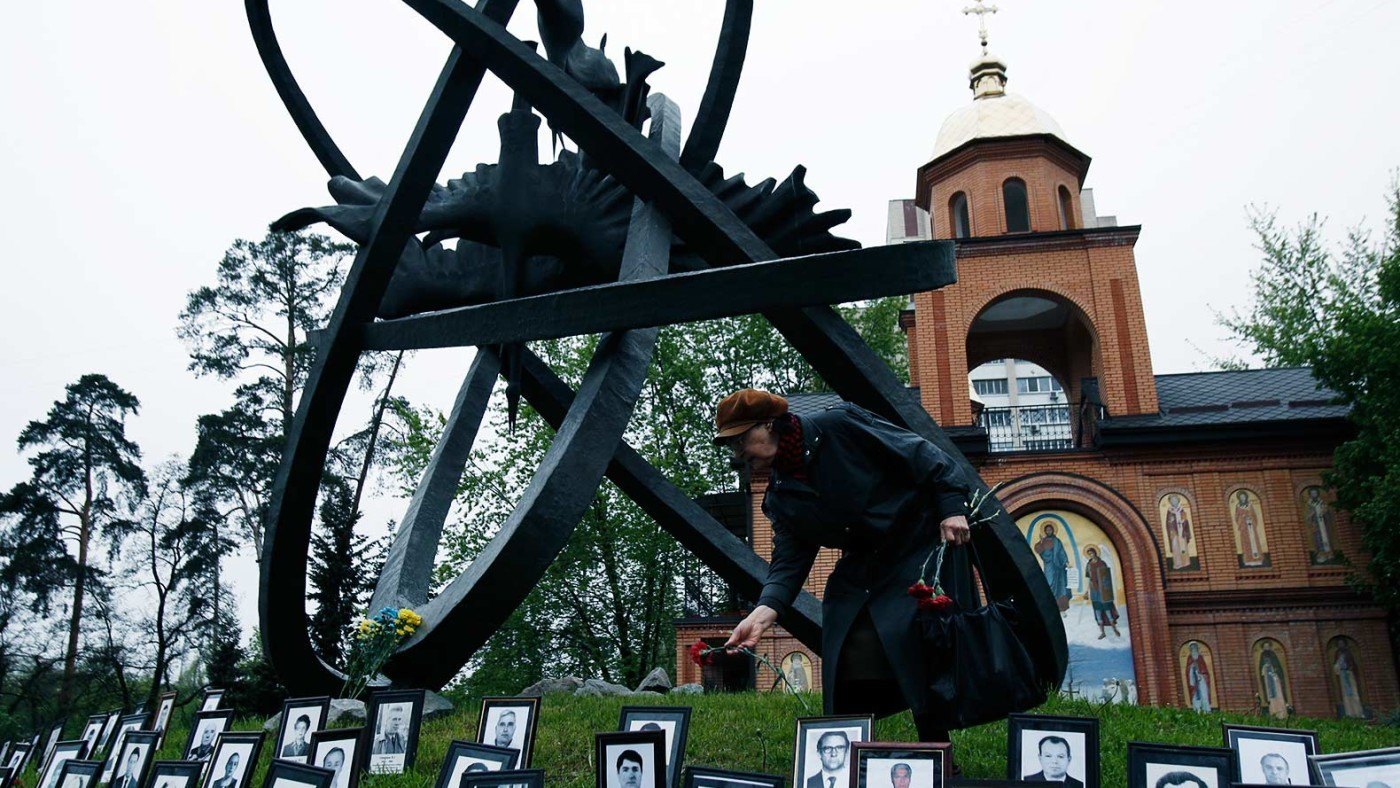Growing up in the Czechoslovak Socialist Republic, childhood did not lack its share of excitement. Sure, we did not have cartoons, toy guns or dolls, but we did get to march through local forests a few times a year wearing a gas mask and learning how to survive a sneak attack from the evil capitalists in West. The teachers didn’t tell us how a gas mask was to protect us from a mushroom cloud, but, as the saying goes, it’s the thought that counts. We even got to learn how to throw hand grenades, well, apples, really. It is all very simple: you take a bite of the apple, count to five, throw the apple and voilà… two seconds later you got yourself a dead capitalist. Those kinds of memories are tough to come by these days.
And so, it came as a bit of a surprise that when the cloud of radioactivity finally came, it came from our eternal and fraternal comrades in the East. You see, the Soviets, incompetent and immoral, managed to blow up one of their nuclear reactors and then did not tell anyone about it.
The design problems with Soviet nuclear reactors are now well known, but back in the 1980s, the Soviets still insisted that socialist nuclear technology was second to none. Similarly under-appreciated was the abysmal work ethic in the socialist bloc and the utter disregard for basic health, safety and environmental considerations that characterized most state-owned enterprises. What was never in doubt, however, was the power of socialist propaganda.
And so, when a comedy of errors – conflicting orders, a lack of coordination and communication, bad timing, etc. – resulted in the tragic explosion at Ukraine’s Chernobyl nuclear power plant, the Soviets denied that anything was wrong.
The explosion of Reactor 4 happened on April 26, 1986. The Soviet media briefly acknowledged “an accident” at Chernobyl on April 29, but said little more. On April 30, the Soviet media covered preparations for the May Day celebrations and reported, falsely of course, that the United States suffered 2,300 nuclear accidents in 1979 alone. On May 1, the May Day parade celebrating the socialist worker went ahead throughout the Soviet Union, including Ukraine, where the socialist worker was being slowly poisoned by radiation.
Nothing was to be done to disturb the appearance of normalcy. And if a few people died … well, as Reg, the leader of the People’s Front of Judea in Monty Python’s Life of Brian, tells his small group of assassins as he sends them to their deaths while remaining behind because of “a bad back,” “Solidarity, brother.”
In fact, as Robert McConnell wrote in National Review five years ago:
“It was not until May 6 that announcements ran on Kyiv local radio and television warning the population to close their windows, to wash and peel vegetables, and to keep children indoors.”
And so it was one May evening that my mother sat the little old me on a chair in the kitchen and told me that under no circumstances was I to drink the milk that our school provided to all the kids at lunch time. (Yes, we were all very progressive back then. The shops were empty and prisons full of political dissenters, but the milk was “free.”)
A friend of my parents, who worked in one of the nuclear fallout shelters that were sprinkled around my home town, noticed that the Geiger counters at the shelter were going apoplectic and phoned all of his friends that something strange was, so to speak, in the air. My mother surmised that radioactivity would make its way down the food chain and into our milk. (In all likelihood, she was mistaken, as not enough time had elapsed between the Chernobyl explosion and contaminated milk arriving in the school cafeteria.)
In any case, the next day I refused to down my glass of milk. An eagle-eyed teacher, a good and stout comrade, asked what the matter was. I told her that my mom told me not to drink milk. So she grabbed me by the shoulders, forced a glass of milk in my hand and watched as my little act of defiance disappeared down my terrified throat.
In the short run, the solidarity of the socialist bloc was preserved. In the medium run, however, the explosion at Chernobyl fatally undermined the Soviet reputation for scientific excellence and gave rise to an environmental consciousness movement in Eastern Europe that soon became an umbrella organization for most anti-communist forces in the region. A few years later, it would play a crucial part in the Velvet Revolution that consigned communism to the dustbin of history.


